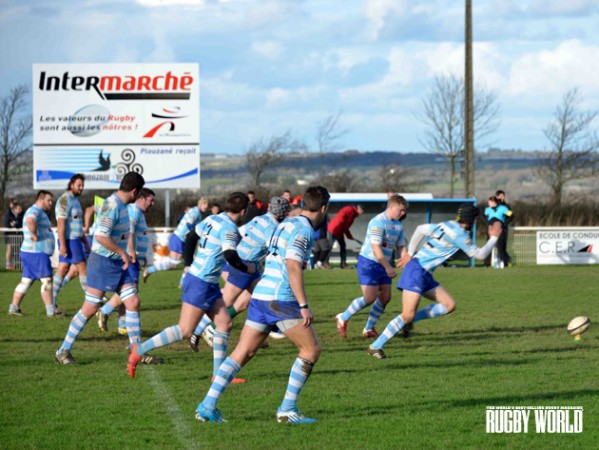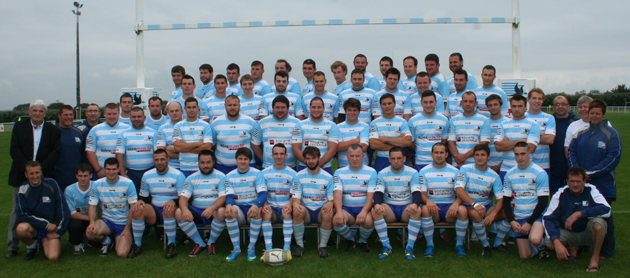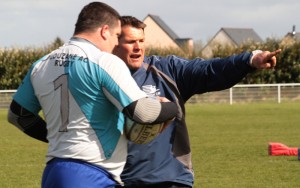The most isolated team in France, Plouzané, is being coached by an Englishman. Rugby World went to find out more…
When it comes to Brittany, football reigns. Along with its quaint fishing villages and magnificent beaches, Brittany boasts four clubs in the French first division – Rennes, Guingamp, Nantes and Lorient.
Traditionally, rugby hardly gets a look-in, despite the fact Bretons have a reputation for being a tough race. Basques have hot blood but Bretons have hard heads, along with a fierce independence – a similarity they share with their Celtic cousins in Cornwall.
But while rugby has a long and proud tradition among the Cornish, in Brittany the sport never established the same foothold even though it was in the far north of the country where rugby was first played in France in the early 1870s. In the decades that followed rugby migrated south, to the warmer climes of Biarritz, Beziers and Brive, leaving Brittany to pursue its obsession with the round ball.
Recently, however, rugby has started to lay down roots in Brittany. Nantes hosted three pool matches during the 2007 World Cup, and the semi-finals of last season’s Top 14 were also held in the city. As recently as December, Harlequins thrashed Racing 32-8 in a Heineken Cup pool match, a stunning performance that silenced the 35,000 Bretons who had come to the Stade de la Beaujoire in Nantes.
Two hundred miles north-west of Nantes is Plouzané, a seaside town with a famous old lighthouse and a rugby team that is a beacon of hope for rugby in Brittany. The coach of the first XV is Steven Sparks, a name that may stir memories for aficionados of English rugby.
The 39-year-old Sparks began his career propping the scrum of his hometown club, West Hartlepool, before moving to France at the end of the 1990s. Spells followed with La Rochelle and Castres (in what was then the Top 16) before he returned to England in 2003. Sparks had a season at Saracens, playing in a front row that included Raphael Ibanez and Cobus Visagie, before joining Worcester for a couple of years. In the end, however, the pull of France proved too much and Sparks returned to finish his career with Morlaàs, a Federale One side in the foothills of the Pyrenees.
Calling time on his career a few years ago, Sparks moved to Brittany with his young family (his wife is French) and for a while dabbled in the property business. But he missed his rugby and when he heard Plouzané were looking for a full-time coach in 2011 he successfully applied. “I’ve got all my coaching badges,” he explains. “It took two years in total and was quite difficult, but all worth it.”
Since Sparks became coach, Plouzané have enjoyed two promotions and now reside in Federale Three. But success brings its own challenges as with every promotion the club is forced to literally broaden its horizons.
As Midi Olympique explained in a recent feature on Plouzané, the club is the “most isolated” in the French league system, a fact for which Sparks can vouch. “Our local derbies are against Le Rheu and Auray,” he tells Rugby World. “They’re both in Brittany but they take about three hours to reach.”
Plouzané’s longest trip is to Surgères, situated between La Rochelle and Bordeaux, which is a round trip of 550 miles – in English terms that’s like going from London to Newcastle and back. “For the really long trips we leave on the Saturday, stay in a hotel overnight, play on the Sunday and then drive straight back,” explains Sparks. “Often we don’t arrive back until the early hours of Monday morning, and a lot of the boys then have to be at work a few hours later.”
Such demands naturally affect the demographic of the squad. “We’ve got farmers, sailors, students but the average age is probably around 23 and they’re players who don’t have young families,” says Sparks. Then there’s the financial cost of each away game, a sum Sparks estimates to be around €3,000 every time they hit the road. “We have a lot of small sponsors who help us out and the players also contribute to the costs.”
But the dedication, allied to Plouzane’s on-field success, is reaping its rewards. The junior section is thriving with more than 160 youngsters playing each week and 80% of the first XV squad have come up through the system. Sparks is evidently relishing the challenge of coaching France’s most remote club, and for their part Plouzané are delighted to have a coach of his calibre. “As much as he is English,” says club president Guillaume Renault, “he understands our mentality.”







